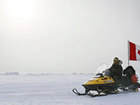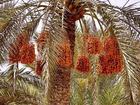In response to concerns about the rise in drug-resistant superbugs worldwide, U.S. regulators Wednesday issued voluntary guidelines to help cut back on antibiotics routinely fed to farm animals.
The plan described by the Food and Drug Administration is not mandatory, and applies only to certain pharmaceuticals that are given to healthy livestock in a bid to grow bigger animals and boost food production.
 Full Story
Full Story
NASA said Wednesday it was looking into a problem with a malfunctioning cooling pump on the International Space Station, but there was no immediate danger to the two American astronauts, three Russian cosmonauts, and Japanese astronaut on board.
A valve on a pump on one of the station's two external cooling loops shut down because it was too cool Wednesday afternoon, NASA spokesman Bob Jacobs said. He said that at no time was the crew at risk. But some non-critical equipment on the massive orbital outpost was powered down.
 Full Story
Full Story
Japan is planning to earmark 100 billion yen ($970 million) for a storage facility for tens of thousands of tonnes of soil contaminated with radiation from the Fukushima disaster, a report said Wednesday.
The government will set aside the cash to buy some 3 to 5 square kilometers (1.2 to 2 square miles) of land somewhere near the crippled plant, the Asahi Shimbun reported.
 Full Story
Full Story
Comet ISON, once optimistically called the comet of the century, is dead, the victim of a way-too-close brush with the sun. It was barely a year old.
The comet, which excited astronomers and the media as it zipped within 730,000 miles of the sun on Thanksgiving Day, was pronounced dead at a scientific conference Tuesday. Astronomers who had followed the ice ball mourned the loss of the sky show that once promised to light up during December.
 Full Story
Full Story
Conservationists on Wednesday slammed Australia's approval for an Indian firm to expand a major coal port on the Great Barrier Reef coast, warning it would hasten the natural wonder's demise.
"The Great Barrier Reef is dying and (Prime Minister) Tony Abbott is hastening its death," Greens leader Christine Milne told reporters.
 Full Story
Full Story
A nuclear war between India and Pakistan would set off a global famine that could kill two billion people and effectively end human civilization, a study said Tuesday.
Even if limited in scope, a conflict with nuclear weapons would wreak havoc in the atmosphere and devastate crop yields, with the effects multiplied as global food markets went into turmoil, the report said.
 Full Story
Full Story
A U.S. space agency rover tooling around on the surface of Mars has found remnants of an ancient freshwater lake that may have supported tiny life forms, scientists said Monday.
There is no water left in it, but drill tests and a chemical analysis of its fine-grained rocks by the Curiosity robot's science instruments suggest microbial life could have thrived there billions of years ago.
 Full Story
Full Story
Canada signaled intentions to claim the North Pole and surrounding Arctic waters while announcing Monday the filing of a U.N. application seeking to vastly expand its Atlantic sea boundary.
After a decade of surveying the country's eastern and far north seabeds and gathering supporting evidence, a claim was submitted to the Commission on the Limits of the Continental Shelf on Friday.
 Full Story
Full Story
After the Boston marathon bombings, people who spent six hours a day scouring media for updates were more traumatized than those who were actually there, a U.S. study suggested Monday.
The study raised questions about the psychological impact of repeated exposure to violence via digital and traditional media in the first major terror attack on U.S. soil since September 11, 2001.
 Full Story
Full Story
Scientists from Saudi Arabia and China said on Sunday they have completed mapping the genome of the date-palm tree, whose fruit is a staple food in many regions.
Scientists from Riyadh's King Abdulaziz City for Science and Technology and China's Shenzhen-based BGI have been working on the project since 2008.
 Full Story
Full Story



